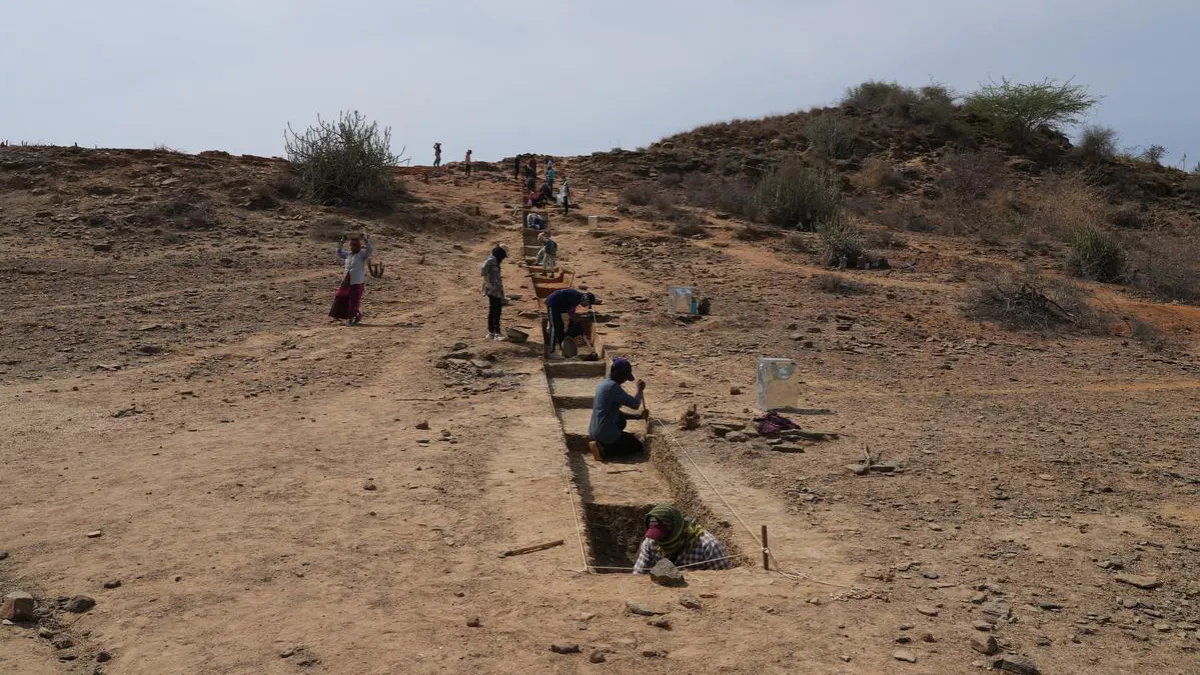Archaeologists from Kerala University with more crucial findings from a 5,200-year old Harappan settlement at Padta Bet in Kachchh district
04 Apr 2024
News
The academic community and history enthusiasts have been fascinated by the Indus Valley civilisation, which is regarded as one of the oldest examples of civilisation. The mysteries of the ancient civilization are still being uncovered by excavations carried out at a number of the locations where the ancient city of Harappa flourished millennia ago.
In the Kachchh district of Gujarat, archaeologists from Kerala University, who had previously conducted numerous fruitful expeditions to find an Early Harappan necropolis Juna Khatiya in 2019, have uncovered additional significant discoveries from a 5,200-year-old Harappan settlement at Padta Bet, approximately 1.5 km distant, close to Khatiya village.
The village was dug out of the side of a little hilltop known as Padta Bet in the area. The archaeological deposits at the site were discovered in two distinct localities, each covering an area of about 200 m by 200 m. The sediments were discovered in several clusters. Among the unearthed remnants were the remnants of a circular building and several rectangular constructions of various proportions, all constructed from sandstone and shales that could be found nearby.
The region was inhabited by the Harappan people between the Early and Late Harappan eras, or around 3200 and 1700 BCE, based on the abundance of pottery, artefacts, and a few animal bone pieces found there. According to Mr. Rajesh, there is evidence of Early Harappan, Classical Harappan, and Late Harappan types in the pottery.
A significant amount of the ceramics appear to be of unique sorts, even if many of the pottery sherds are comparable to the documented Harappan pottery of other sites. These ceramic varieties appear to represent a regional custom in this area, and they may be a part of the Harappan pottery traditions that have not yet been described. These ceramics range from big storage jars to little plates and bowls.
Collaborating in the research programme are other establishments such as the Deccan College Post Graduate and Research Institute, Pune; KSKV Kachchh University, Gujarat; Central University of Karnataka; Assumption College, Changanassery; Albion College and Texas A&M University, United States; Spanish National Research Council; University of La Laguna, Spain; and the Catalan Institute of Classical Archaeology.
